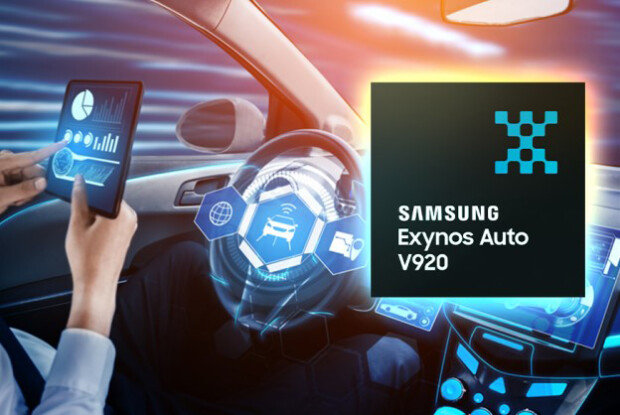Samsung, Hyundai Motor join forces for future cars
Samsung, Hyundai Motor join forces for future cars
Posted June. 09, 2023 08:26,
Updated June. 09, 2023 08:26

Samsung Electronics and Hyundai Motor have partnered for automotive semiconductors. Samsung Electronics announced that it will supply Hyundai Motor with its Exynos Auto V920 semiconductors for in-vehicle infotainment (IVI) starting in 2025. This marks the first cooperation in the field of system chips, which serve as the "brains" of vehicles. This partnership carries significance as two companies, each with their own success stories in the semiconductor and automobile markets, have come together in a significant collaboration to position themselves in the future car market.
This collaboration allows both companies to gain a key competitive advantage in the future automobile market. The automotive semiconductor market, which forms the core of autonomous vehicles, is a promising industry projected to reach $143 billion by 2029. Samsung Electronics, a second mover in this field, will be able to increase its business competitiveness by securing a large customer, Hyundai Motor. Hyundai will also be able to secure a stable supply chain through Samsung, which can design and produce chips.
Historically, prominent domestic companies fiercely competed with each other during their business expansion. However, after the generational change in the leadership of major companies, they have been actively forming strategic partnerships to secure future growth engines. Hyundai Motor has decided to establish a battery joint venture in the U.S. with SK On and LG Energy Solution to meet North America's growing demand for electric vehicles. Samsung Electronics has partnered with LG Display for its business in organic light-emitting diode (OLED) TVs following its recent announcement of reentering the market after a decade. Additionally, it has collaborated with NAVER for the development of AI chips.
Amidst the U.S.-China conflict and the supply chain reorganization, countries worldwide are forging alliances between companies and nations. Japan has formed a "semiconductor dream team" with its leading companies, while Intel has forged a foundry alliance with its former rival, ARM, in the U.K. In the U.S., Ford has partnered with China's CATL and remains open to collaboration even with competitors if necessary. The global semiconductor supply chain is undergoing reshaping, with major governments competing to gain a production edge by offering subsidies.
In this situation of infinite competition, domestic companies in high-tech industries such as semiconductors, future cars, and batteries can build significant synergies if they join forces to create a 'dream team.' For such cooperation to become a successful model, companies must not be left to run alone. Legal and institutional support for research and development, increased investment, and workforce development must be accelerated for them. The success of this high-tech war, which seems to resemble an all-out national war, will be determined by the willingness and capability of the 'Korea One Team.'







